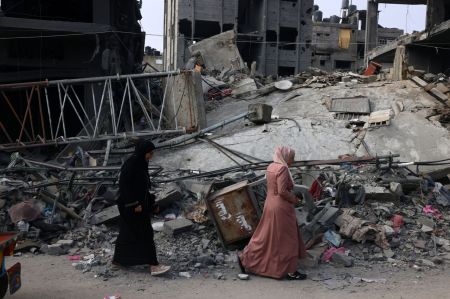Until the Spanish Civil War of 1936-38, Pablo Neruda had been celebrated as the great modern Spanish love poet. The war changed that. It drew Neruda into the centre of politics.
Neruda’s great poem, I’m Explaining a Few Things, like Pablo Picasso’s painting, was created in response to the bombing of civilians by Hitler and Mussolini’s airforces at Guernica in 1937.
If Neruda were alive today, maybe his poem would have gone something like this.
The original poem by Pablo Neruda is here
Neruda’s great poem, I’m Explaining a Few Things, like Pablo Picasso’s painting, was created in response to the bombing of civilians by Hitler and Mussolini’s airforces at Guernica in 1937.
This atrocity resulted in the death of over 1000 civilians. As of today, November 11th, 2023, more than ten times that number have been buried in the rubble of Gaza.
 |
| Guernica, by Pablo Picasso |
If Neruda were alive today, maybe his poem would have gone something like this.
The cultural critics are going to say:
Poet, can’t you give the politics a rest?
Where are the lilacs, oh poet?
And the poppy-petalled metaphysics?
And the rain,
Spattering its words full of birds and flowers?
♞♜♝
Oh, have no fear, I’ll tell you all about flowers.
♞♜♝
My grandmother, my Tata, loved geraniums;
her scarlet Haifa garden, left behind in ’48.
Flowers followed her, driven from camp to camp,
like the Wandering Jew of old: Tripoli, Shatila, Askar.
And then, Gaza.
Here, trapped between the barbed wire and the sea.
♞♜♝
So now her great grandchildren chirrup round the broken streets of El Baheer,
On the edge of Khan Younis, with its mosques and clocks and uncollected rubbish.
And we make the life we can.
Our life.
Sometimes with electricity, more often not.
And every five years we look to the skies.
♞♜♝
From El Baheer you can gaze north
over Palestine’s dry face:
a leather ocean.
Then south through green citrus groves, to Al Mawasi.
♞♜♝
Our house!
Karim called it the house of flowers,
because in every cranny crimson geraniums burst,
like the blood of the living.
A noble-looking home,
with its dogs and children.
And we lived, always with one eye on the sky.
♞♜♝
Around us, everything loud with big voices.
The salt of merchandise:
in the better moments
Fatima’s oil flowing into ladles,
Figs and almonds from Al Zahra,
and the deep murmur
of feet and hands and cries, swelling in the streets.
Metres, litres, the sharp
market measure of life.
Stacked-up fish, ivory potatoes, bottled water.
And wave on wave of tomatoes rolling down to the sea.
♞♜♝
And then, one morning, the sky shrieked,
fire leapt out of the earth
devouring human beings –
and from then on the scream of explosions,
and from then on grey rubble and blood.
Pious men with jets,
Kevlar wearing bandits with shapely teeth,
Heroes who holiday each year in Disney Florida,
Butchers with fake rabbis spewing blessings
came through the sky to kill children.
And the blood of children ran through the streets,
without fuss, like children’s blood.
♞♜♝
Jackals, that the jackals would despise!
Stones that the dry thistle would bite on and spit out!
Vipers that the vipers would abominate!
♞♜♝
Face to face with them, I have seen the red blood
of Palestine tower like a tide
to drown them in one wave!
♞♜♝
Crazed colonisers:
See my dead house!
Look at broken Gaza:
from every house, instead of flowers,
the heads of grey children grow from the rubble.
And in every mind
Gaza’s name crystallises.
And from every crime bullets are born,
to one day pierce their dessicated hearts.
♞♜♝
And the critics ask: why doesn’t his poetry
speak of dreams and leaves
and the great olive groves of his native land?
♞♜♝
Don’t you see the blood in the streets!
Don’t you see the blood in the streets!!
Don’t you see the blood in the streets!!!
Pablo Neruda, after an original translation by Nathaniel Tarn, freely adapted by John Graham Davies
The original poem by Pablo Neruda is here








No comments